SA entrepreneurs capturing global attention
A new group of young entrepreneurs is putting SA’s burgeoning start-up sector on the map. We speak to six of the state’s brightest sparks about their latest ventures.
Business
Don't miss out on the headlines from Business. Followed categories will be added to My News.
A new group of young entrepreneurs is putting South Australia’s burgeoning start-up sector on the map.
We speak to six bright sparks, whose ideas are capturing global attention - ranging from compostable products to software developed for the health and aged care sectors.
LUMARY / CAREAPP
Some of the state’s newest and brightest ideas are attracting global attention, and millions of dollars of investment to accelerate their growth.
Health software start-up Lumary recently secured $17m from a group of local and overseas investors, including US technology giant Salesforce and venture capital firm OneVentures.
Tech entrepreneurs Joseph Mercorella and Matthew English established Lumary in 2017 after identifying a need for new software to manage the complex relationships between providers, consumers and others participating in the NDIS.
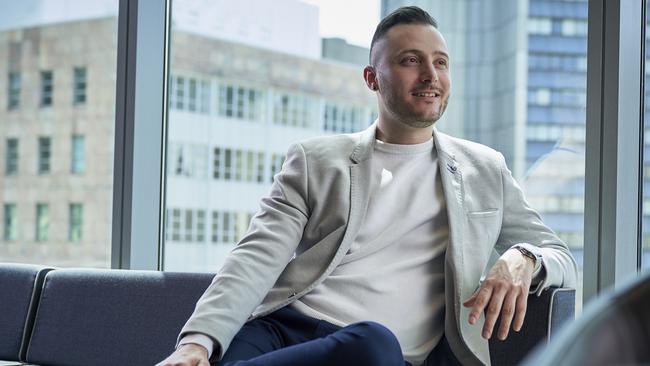
It has since developed a range of Salesforce-backed workflow management and other digital platforms, offering disability and aged care providers an “end-to-end” system for scheduling, resourcing, accounting, document management, communication and reporting.
The company employs more than 100 people and generated more than $20m of revenue last financial year.
Mr Mercorella, 37, said with the recent injection of capital, the lucrative US market was now firmly on the company’s radar.
“Helping care providers to digitally transform and enabling organisations to navigate the complex environment of the NDIS underpins Lumary’s vision,” he said.
“What came later was the understanding and recognition that the NDIS was just one type of
government funding scheme, and that the Lumary platform could be implemented for other
programmes on a national and global scale.
“We have initiated plans to expand on our success in Australia and support better health
outcomes for the global community, starting with the USA.”
Mr Mercorella said while the company was focused on taking its platform global, its headquarters would remain in Adelaide.
“The beauty of tech is that South Australian companies can solve global problems in their own backyard,” he said.
“Choosing to build and stay creates more high-tech opportunities in Adelaide and Lumary hopes to lead the way and encourage other start-ups to do the same.”
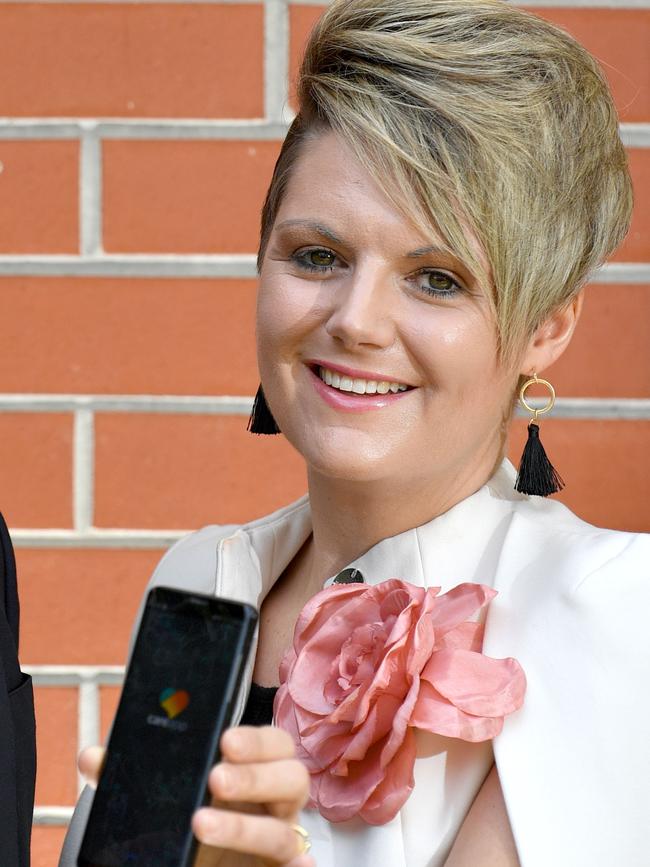
Another company with its eyes on the lucrative US market is technology platform CareApp.
The app, which allows aged care operators to share notices, images, videos and newsletters with families and friends of loved ones in care, has secured $1m in funding since 2019, to support an overseas expansion after being used by more than 200 aged car providers in Australia.
Founder Allison Nikula, 39, said the aged care royal commission and Covid-19 had highlighted the important role technology could play in improving standards across the industry.
“In an industry that is behind in its use and application of technology, Covid-19 has fast-tracked the research, innovation and adoption of technology solutions,” she said.
“A technology-enabled and supported care environment will not only enable the aged care industry to rebound from the catastrophic impact of Covid-19, but will support the provision of better care for our loved ones into the future.”
ANTON ANDREACCHIO
Anton Andreacchio was 22 when he founded his first company with brother Carlo, inspired by the potential presented by virtual reality technology.
Since then his animation business, Convergen, has developed more than 600 visualisation projects for major mining and infrastructure projects across Australia and New Zealand, while his virtual reality works have been featured at film festivals around the world, including Sundance and the Venice Biennale.
But the entrepreneur, 34, is now turning his attention to the “future of work”, and the impact automation and artificial intelligence (AI) could have on industries ranging from engineering and mining right through to the arts.
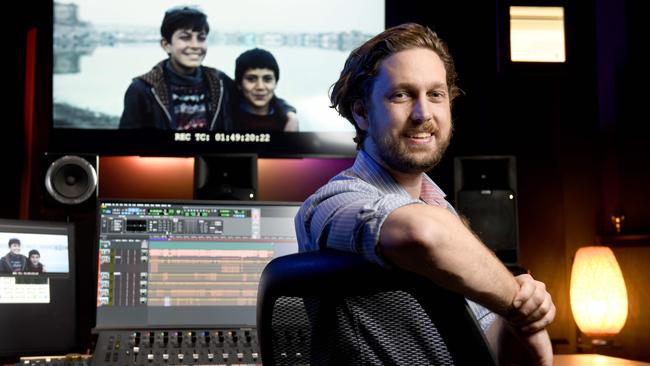
“Automation and service economy have dominated the economic conversations for the last few decades, however with such a focus on technological transformation, we like to flip it and ask what won’t be automated?” Mr Andreacchio said.
“In other words what is the role that humans will play in the future?
“This is a great question to ask if you’re designing a mine site for 30 years of operations. However it’s actually a question that we’re already behind on, as work is struggling to keep up with a lot of technological integration.
“By focusing on what won’t be automated we’re able to see automation as an enabler to support work, rather than a threat to existing jobs.”
In 2019, the Andreacchios joined forces with Hollywood production veteran Michael Darren to establish Artisan Post Group at Lot Fourteen - a centralised post-production facility for sound and vision artisans.
Lot Fourteen is now the base for all of Mr Andreacchio’s ventures.
He describes his move to the city’s main start-up hub as a “transition from start-up modes of operating to scaling”.
“We’re also quite lucky in that we’ve had an array of unorthodox adventures across a range of industries which has positioned us well for attacking future of work questions,” he said.
“Farsite (software for remote works in construction and mining) is a step in that direction too, as a spin out that we’ve set up as a SaaS (software as a service) platform.
“These future interfaces are really dynamic though, so it’s as much about how we continue to look at human-technology interfaces - be it football or film - to find our role to play. Lot Fourteen is perfect for this.”
MAKERS EMPIRE
A vision to create the world’s easiest to use 3D design software has resulted in local start-up Makers Empire rolling out its software to close to 2 million students in 1000 schools around the world.
In March, the company secured close to $300,000 from the State Government to support development of MakeShop - a platform where high-quality 3D prints can be ordered through the Makers Empire 3D design app.
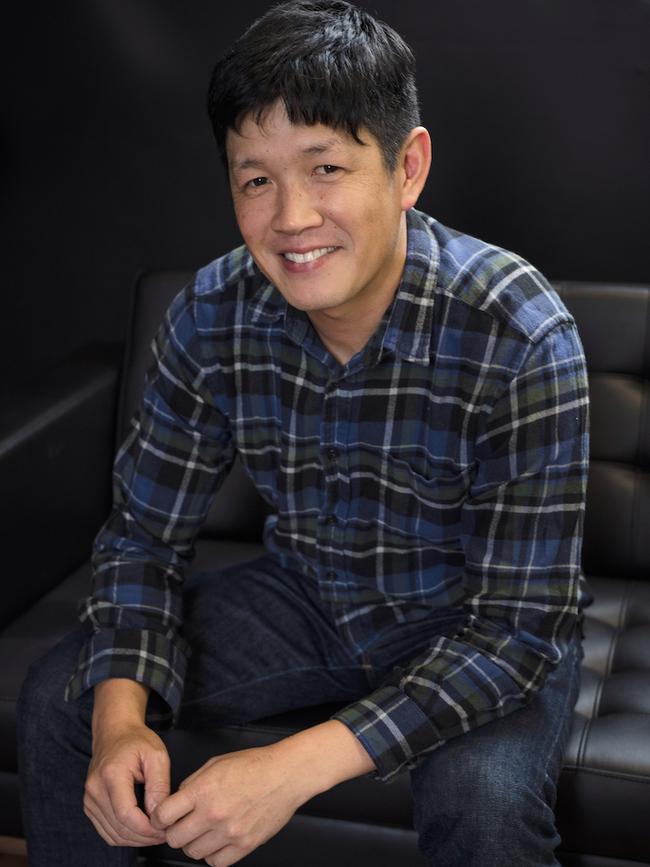
It is expected to create more than a dozen local jobs within two years.
Makers Empire chief executive Jon Soong, who co-founded the company in 2014, said it was also exploring opportunities to integrate augmented and virtual reality into its software, as well as potentially expand its product range into middle schools.
“Our vision has evolved to helping every child be empowered to be a creator, innovator and problem solver so they can make their own world better,” he said.
Mr Soong said the design and technology skills developed through use of the Makers Empire software were well suited to South Australia’s industries of the future.
“I believe the overlapping industries that include advanced manufacturing, creative industries, med-tech, and defence are all poised to play a major role in the state’s future,” he said.
“For South Australia to capture this opportunity we need to educate our students now in the skills of the future that can’t easily be replicated by computers or robots.
“The 4 C’s - collaboration, creativity, critical thinking, and communication - capture a great deal of the skills we believe students should be learning.”
MARION VIGOT
After co-founding sustainable straw company Mister RYE in 2019, Marion Vigot has expanded her business to include a range of home-compostable products for the hospitality industry.
Her new platform, Compostable Alternatives, was launched on March 1 - the same day single-use plastics were banned in South Australia.
The aim is to supply independent cafes and restaurants with home compostable coffee cups, cling wrap, disposable gloves and other sustainable products, while raising awareness about the difference between home and commercially compostable materials.
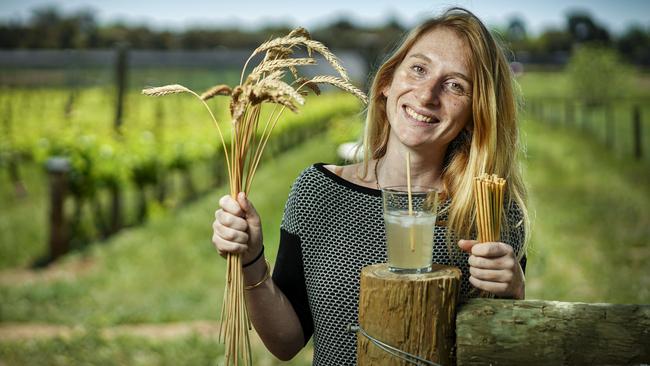
During a trip around Australia in a campervan a few years ago, Ms Vigot, 29, saw first-hand the amount of plastic waste threatening local ecosystems. It provided the inspiration for her sustainability mission.
“Our mission is to support a shift of behaviour in the sustainable hospitality industry,” she said.
“Working in the compostability industry for more than two years, we noticed a lot of misinformation around products said to be compostable.
“99 per cent of compostable packaging are only commercially compostable. That means they are required to go in an organic green bin to access commercial composting.
“We want to make it easy for businesses and their customers to transition to alternatives, and at the same time, dispose of these products with the reassurance they won’t be harming the environment or creating a new source of pollution.”
Ms Vigot said while her products were typically more expensive than traditional plastic and paper products, they came with advice on how to change behaviours and keep costs down.
“With the lack of current infrastructure for products that are said to be compostable but in fact are commercially compostable only, we believe our industry for home compostable products is the easiest way to achieve less pollution, less plastic and less confusion,” she said.
“The recent ban on single-use plastic is a great move forward for our state.”
FOXIE GAMES
After seven years as an aerospace engineer, Dineth Abeynayake set up Foxie Games in 2017 with a vision to connect people with their passions and hobbies through online games.
Just four years later and the company employs 24 developers and other staff in Adelaide, and has developed four original games for mobile devices, downloaded by more than 15 million players in the past year alone.
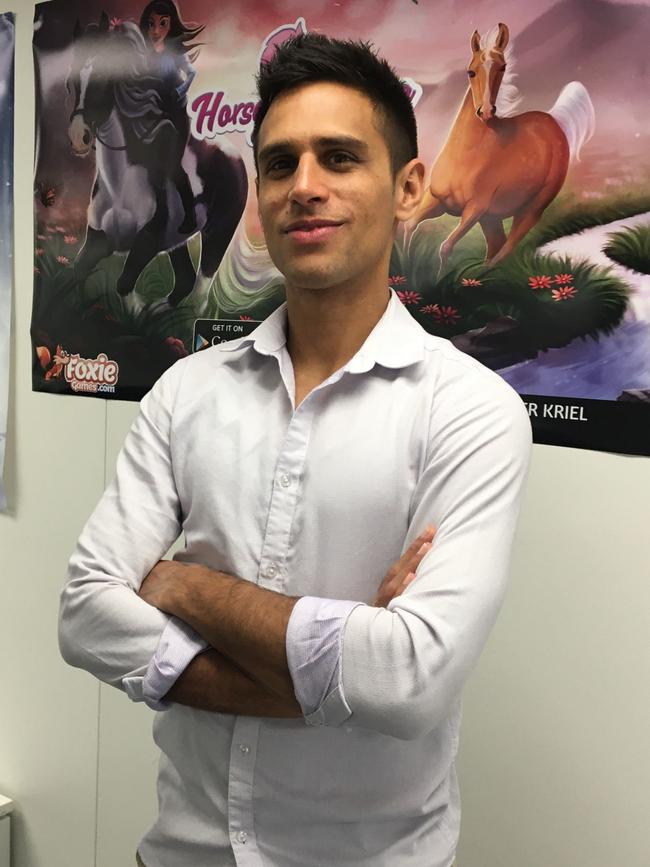
Mr Abeynayake, 33, said gaming proved resilient during Covid-19 given the number of people spending more time at home, and that provided an opportunity for the state’s burgeoning gaming industry.
“I’m hugely excited about digital products - a weightless export that can be built once and reach tens of millions of users, providing anything from information to entertainment,” he said.
“Games are a perfect example of such a product, and they also need a wide variety of skilled people to build - from programmers to artists to data analysts and everyone in between.
“The continuing success of the games industry can lead to the creation of many new SA jobs in this wide variety of areas.”
Mr Abeynayake said while the company’s initial focus was on equestrian-themed games, it was now looking beyond that to other virtual worlds.
“Our future plans are to build even larger scale original games, which we hope will unlock even larger opportunities for the company so we can double our size, or even more,” he said.





